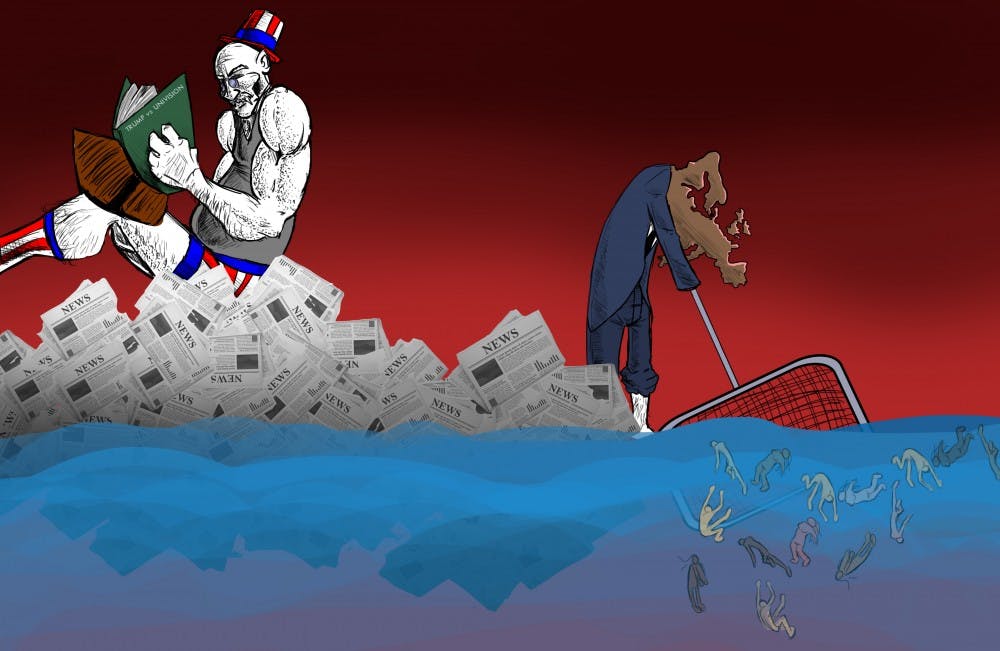As yet another presidential election draws nearer, the inevitable spat of hot-button topics sprouts anew. Chief among them remains the great illegal immigrant debate: what to do about our rather porous border with Mexico and the millions of Mexicans who have come to our country illegally?
The United States has been engulfed in the great illegal immigration debate and ridiculous proposals are being floated around to deport all illegals back to Mexico – this would be about 11 million people, or roughly 3 percent of the U.S. population. Incoherent hand waving seems determined to somehow overlook any consequences.
Yet for all the sound and the fury concerning our friends to the south, perspective seems to have been totally lost. We have it easy. Mexican migrants have large communities that are at least partially integrated to welcome them, and our agricultural economy thrives on illegal labor with illegals making up 5 percent of the United States’ workforce.
A more serious comparison awaits us across the Atlantic.
Europe is facing possibly the worst migratory crisis in its history, with a supranational government reeling from economic damage and divided opinion on how to deal with the problem. Worst of all, the migrants are not merely economic travelers – in most instances, they are legitimate asylum seekers who by the European governments’ own policies should be granted asylum.
As Americans, we should be taking a keen interest in the situation.
On Aug. 28, Austrian officials found a refrigerated semi-truck with 71 corpses inside. The deceased were migrants who had paid for smugglers to bring them into Europe, most likely from war-torn Syria. The incident is evidence of the latest surge in migration to Europe. Officials estimate that roughly 270,000 illegal migrants have entered Europe so far this year.
This is not the first incident of death in regards to European migration.
The larger hazard has been migrant sea crossings. Migrants have been increasingly taking long sea voyages to reach safe havens. All too often, these flights are conducted in hazardous conditions on overcrowded ships. The total death toll for migrants trying to reach Europe in 2015 is estimated to be about 2,500 people according to the United Nations High Commissioner for Refugees. And refugee camps for those who do make it are crowded to the point of bursting and conditions are deteriorating.
The problem has been exaggerated by right-wing parties playing upon fears of the unknown and unfamiliar. The UK Independence Party (UKIP) has carefully played upon anecdotal stories of migrant sex rings and preaches of hard-working Britons losing their jobs to waves of foreigners. Slovakia has refused to take any refugees except those that are Christian. Hungary has stepped up rhetoric as a defender of European civilization and is building a wall to stop migrants entering from Serbia, the next stop after Greece and Macedonia.
Yet all is not lost.
European countries started Operation Triton this year to patrol the Mediterranean and pluck refugees from the water. Tens of thousands have been saved so far this year. Some countries, Austria and Germany among them, are taking on massive numbers of migrants in an attempt to ease suffering. Policymakers have scheduled emergency meetings to figure out a concerted response to the crisis.
The United States, as a world super power, should be heavily involved in this European crisis. We should first consider loaning support to European efforts regarding migration, especially Operation Triton. On a basic level, it’s a humanitarian operation and deserves the United States’ effort.
Furthermore, security remains a major concern as many of the refugees are coming from war-torn regions with active terrorist groups. While such concerns should not bar aiding those seeking asylum, the United States should be attentive to possible terrorism coming through Europe. Sending intelligence and police support to Europe’s strained resources could prove immensely valuable both for the United States and Europe’s security.
Finally, we can learn from the plight facing European countries and apply it to our own conversations here. What are the motivations for such movement? Do we have a responsibility to help those less fortunate than ourselves? Do migrants provide a net benefit to the country they come to? What inspires and guides anti-migrant rhetoric?
These questions, and many more, should serve to aid us not only in international affairs, but also in our domestic affairs and elections. Those who seek to demonize and abuse people seeking refuge should warrant the greatest suspicion.
The editorial board can be reached at editorial@ubspectrum.com





